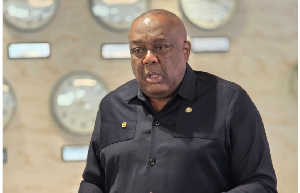Accra, Oct. 25, GNA - The activities of Treatment Supporters of Tuberculosis (TB) has ensured a reduction of defaulters to less than one per cent with the cure rate improving to 84 per cent in the country. Continuous supply of TB drugs has also contributed tremendously to the control of the disease but with a few recalcitrant patients refusing to take their drugs frequently creating resistant strains. Dr George Mensah, Accra Metropolitan Director of Health said this at the opening of a two-day Training Workshop for Treatment Supporters (volunteers) of the TB Voice Network in Accra initiated by Afro Global Alliance.
He explained that whilst in 2003, the cure rate of TB was 54 per cent, the figure in 2007 had improved to 84 per cent, very close to the World Health organisation's rate of 85 per cent.
Dr Mensah lauded the tremendous assistance of the Treatment Supporters to the creation of awareness and prevention of the disease in the various communities and therefore urged the support of both the public and private sectors to ensure the total eradication of the TB disease in the country.
He said the Volunteers have in diverse ways created an enabling environment that had reduced the stigma associated with the disease with many people ready to take their drugs to ensure TB curtailment.
Dr Audrey Forson, Head of Chest Department, Korle Bu Teaching Hospital said there had been positive improvement in measures to control the TB disease with the treatment period shortened from eight to six months whilst the drugs for treatment has been combined to a fixed drug combination to make it easier for users to undergo its frequent usage. She stressed the need for patients who started treatment to be critically observed and assisted to ensure their compliance with the directives to prevent TB bacteria multiplying and attacking different parts of the body.
Dr Forson said the assistance of the volunteers was critical in the fight against the effects of the disease since there is a critical shortage of health personnel in the health sector to help monitor patients' treatment and drug usage.
Dr Forson said there is the need for a concerted effort to embark on a cough hygiene to check coughing, sneezing and spitting to stop TB from infecting and spreading across the spectrum of the society. Chief Austin Obiefuna, Director of Afro Global Alliance on behalf of the Programme Manager of the National Tuberculosis Control Programme, Dr Frank Bonsu said TB is a devastating disease that requires the collective support and involvement of all to help its eradication. He regretted that the issue of the TB disease was growing at an alarming rate with the advent of HIV, especially among the less privileged of the society who due to ignorance, poverty and stigmatisation refused to seek early treatment.
"We don't want to live with TB, we want it to go and so all should get involved in its eradication. TB is not a death sentence". He added. He said TB unlike HIV has a cure and so those with TB should go for early treatment and seek counselling, which is free at all health facilities.
Topics to be discussed include Directly Observed Therapy (DOT) implementation, Overview of TB in Ghana, the role of Treatment Supporters in the fight against TB, Community sensitisation, case detection (referral), defaulter tracing and treatment support.
Health News of Thursday, 25 October 2007
Source: GNA













